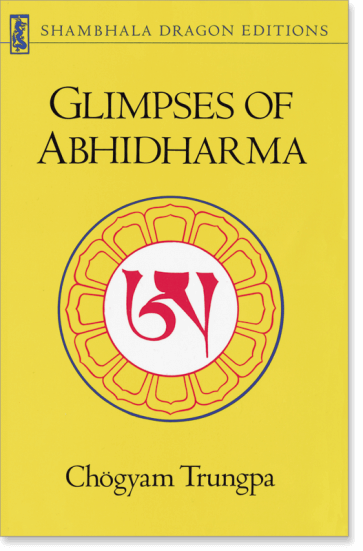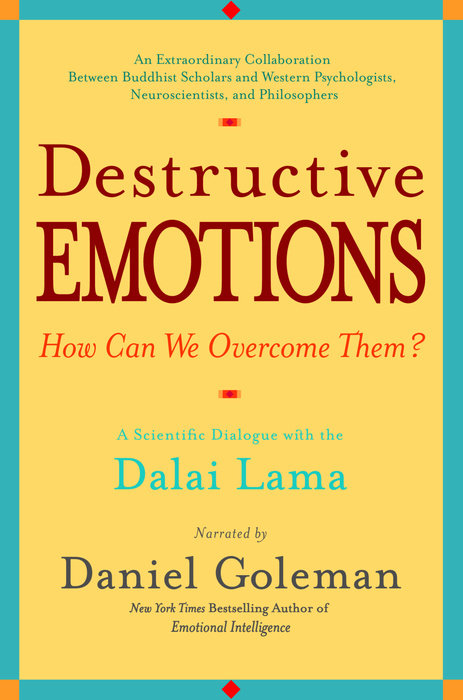Quantum Physics & Consciousness, 3 of 3
By
Amit Goswami — 2007
YOU MIGHT ALSO LIKE
CLEAR ALL
BY TOPIC
BY TEACHER
BY TYPE
FILTER

TOPIC
- Altered States (22)
- Mind-Body Connection (17)
- Conscious Evolution (15)
- Connection with Nature (14)
- Psychology and Spirituality (13)
- Afterlife (11)
- Self-Healing (11)
- Spiritual Awakening (11)
- Ego Transcendence (10)
- Near-Death Experience (10)
- Awareness (9)
- Buddhism (9)
- God (9)
- Interdependence (9)
- Mysticism (9)
- Human Potential (8)
- Philosophical Approaches (8)
- Self-Discovery (8)
- Spiritual Growth (8)
- Transpersonal Psychology (8)
- Imagination and Creativity (7)
- Integrative Medicine (7)
- Meditation (7)
- Non-Duality (7)
- Visions and Hallucinations (7)
- Enlightenment (6)
- Epigenetics (6)
- Naturopathy (6)
- Perception (6)
- Spiritual Life (6)
- Ego (5)
- Islam (5)
- Oneness (5)
- Past Lives and Reincarnation (5)
- Psychedelic Research (5)
- Psychedelic-Assisted Therapy (5)
- Self-Realization (5)
- Transformation (5)
- Values (5)
- Addiction (4)
- Anxiety (4)
- Authenticity (4)
- Chronic Health Conditions (4)
- Community Healing (4)
- Depression (4)
- Finding Meaning (4)
- Functional Medicine (4)
- Global Challenges (4)
- Holism (4)
- Inner Peace (4)
- LSD (4)
- Neuropsychology (4)
- Prayer (4)
- Psychology (4)
- Religious Experience (4)
- Search for Purpose (4)
- Self-Care (4)
- Self-Development (4)
- Self-Reflection Practices (4)
- The Unconscious (4)
- Tibetan Buddhism (4)
- Transcendent Experience (4)
- Trauma Healing (4)
- Wholeness (4)
- Addiction Recovery (3)
- Archetypes (3)
- Cancer (3)
- Cognition (3)
- Cognitive Psychology (3)
- Comparing Belief Traditions (3)
- Death and Dying (3)
- DMT (3)
- Dreamwork (3)
- Ecospirituality (3)
- Emotional and Mental Health (3)
- Energy Healing (3)
- Fellowship and Community (3)
- Hinduism (3)
- Holotropic Breathwork (3)
- Indigenous Healing Approaches (3)
- Inner Life (3)
- Judaism (3)
- Living with Illness (3)
- Love (3)
- MDMA (3)
- Other Dimensions and Beings (3)
- Psilocybin (3)
- Self-Mastery (3)
- Spiritual Crisis (3)
- Spiritual Development (3)
- Spiritual Direction (3)
- Spiritual Healing (3)
- Spirituality and Health (3)
- Sustainability (3)
- The Divine (3)
- Women’s Well-Being (3)
- Anger (2)
- Ayahuasca (2)
- BIPOC Well-Being (2)
- Christianity (2)
- Conscience (2)
- Digital Life (2)
- Empathy (2)
- Forest Bathing (2)
- Growth Mindset (2)
- Homeopathy (2)
- Honoring Emotion (2)
- Identity (2)
- Illness and Injury (2)
- Intuition (2)
- Jungian Analysis (2)
- Life Challenges (2)
- Life Force Energy (2)
- Lifestyle Medicine (2)
- Lucid Dreaming (2)
- Memory (2)
- Moral Philosophy (2)
- Parapsychology (2)
- Past Life Regression (2)
- Personal Development (2)
- Problem Solving (2)
- Sacred Feminine (2)
- Self-Limiting Beliefs (2)
- Spiritual Practices (2)
- Spiritual Quest (2)
- Spirituality and Politics (2)
- Stress Management (2)
- Synchronicity (2)
- Taoism (2)
- Trauma (2)
- Unity (2)
- Yoga (2)
- Accepting Love (1)
- Aging (1)
- Alcohol Addiction (1)
- Anima/Animus (1)
- Astral Projection (1)
- Autoimmune Disease (1)
- Awe (1)
- Ayurveda (1)
- Belonging (1)
- Binaural Beats (1)
- Black Well-Being (1)
- Channeling (1)
- Chanting (1)
- Child’s Trauma (1)
- Cognitive Behavioral Therapy (1)
- Communication Skills (1)
- Creative Well-Being (1)
- Cross-Cultural Dynamics (1)
- Dharma (1)
- Diamond Approach (1)
- Drug Policy (1)
- Dysfunctional Childhood (1)
- Ego Dissolution (1)
- Embodiment (1)
- Emotional Intelligence (EQ) (1)
- Empowerment (1)
- Entrepreneurship (1)
- Environmental Exploitation (1)
- Existentialism (1)
- Facing Own Death (1)
- Faith (1)
- Female Empowerment (1)
- Freedom (1)
- Generosity (1)
- Genetics (1)
- Grace (1)
- Guided Imagery (1)
- Handling a Loved One’s Illness (1)
- Happiness (1)
- Healthy Eating (1)
- Heartmath (1)
- Indigenous Well-Being (1)
- Inflammation (1)
- Intention (1)
- Intergenerational Trauma (1)
- Joy (1)
- Karma (1)
- Kindness (1)
- Loneliness (1)
- Longevity (1)
- Mantra Meditation (1)
- Mediums (1)
- Men’s Well-Being (1)
- Mental Health Challenges (1)
- Mindfulness (1)
- Native American Beliefs (1)
- Neoshamanism (1)
- Neuroplasticity (1)
- Obsessions/Compulsions (1)
- Offering Support to Others (1)
- Passion (1)
- Peak Performance (1)
- Physical Health (1)
- Plant Spirit Medicine (1)
- Plant-Based Medicine (1)
- Poetry (1)
- Positive Psychology (1)
- Positive Self-Talk (1)
- Positive Thinking (1)
- Poverty/Economic Inequality (1)
- Presence (1)
- Psychic Abilities (1)
- Psychoanalysis (1)
- PTSD (1)
- Racial Discrimination (1)
- Racial Healing (1)
- Reiki (1)
- Relationship Challenges (1)
- Ritual (1)
- Sabbath (1)
- Self-Actualization (1)
- Self-Compassion (1)
- Self-Discipline (1)
- Self-Esteem (1)
- Self-Love (1)
- Shadow (1)
- Sleep (1)
- Soul Mission (1)
- Sound Healing (1)
- South American Shamanism (1)
- Stoicism (1)
- Subconscious (1)
- Telepathy (1)
- Traditional Chinese Medicine (1)
- Visualization (1)
- Well-Being (1)
- Zen Buddhism (1)
FILTER

TEACHER
- Stanislav Grof (6)
- David R. Hawkins (4)
- Deepak Chopra (4)
- Fritjof Capra (4)
- Larry Dossey (4)
- Peter Russell (4)
- The Dalai Lama (4)
- Anil Seth (3)
- Bernie S. Siegel (3)
- Bruce Lipton (3)
- Charles Tart (3)
- Daniel Goleman (3)
- Eben Alexander (3)
- Ram Dass (3)
- Rick Strassman (3)
- Rupert Sheldrake (3)
- Seyyed Hossein Nasr (3)
- Alison Gopnik (2)
- Arnold Mindell (2)
- David Bohm (2)
- Eric Maisel (2)
- Gary Zukav (2)
- J. Krishnamurti (2)
- Judith Blackstone (2)
- Matthieu Ricard (2)
- Ralph Metzner (2)
- Sam Harris (2)
- William James (2)
- A. H. Almaas (1)
- Abram Hoffer (1)
- Albert Hofmann (1)
- Aldous Huxley (1)
- Andrew Weil (1)
- Ann Druyan (1)
- Brian Greene (1)
- Carl Jung (1)
- Chögyam Trungpa (1)
- David J. Wolpe (1)
- Deena Metzger (1)
- Dennis McKenna (1)
- Diane Stein (1)
- Eckhart Tolle (1)
- Edgar Mitchell (1)
- Elisa Shankle (1)
- Frances Vaughan (1)
- Frans Stiene (1)
- Gabor Maté (1)
- Gay Hendricks (1)
- Gaylon Ferguson (1)
- Graham Hancock (1)
- Gregg Braden (1)
- Heidi Campbell (1)
- Huston Smith (1)
- Jack Kornfield (1)
- James Oschman (1)
- Jamie Wheal (1)
- Jane Roberts (1)
- Jean Houston (1)
- Joanna Macy (1)
- John Perry (1)
- John Welwood (1)
- Jon Kabat-Zinn (1)
- Joseph Tafur (1)
- Lama Tsultrim Allione (1)
- Louise Hay (1)
- Marc Ian Barasch (1)
- Maria Popova (1)
- Martin Buber (1)
- Martin Luther King Jr. (1)
- Martin Seligman (1)
- Matthew Fox (1)
- Maya Angelou (1)
- Michael Murphy (1)
- Michio Kaku (1)
- Oliver Sacks (1)
- Oprah Winfrey (1)
- Phil Wolfson (1)
- Phillip Moffitt (1)
- Queen Afua (1)
- Reema Datta (1)
- Richard Davidson (1)
- Rick Doblin (1)
- Robert A. Monroe (1)
- Robert Thurman (1)
- Roberto Assagioli (1)
- Roger Walsh (1)
- Rudolph Ballentine (1)
- Sri Aurobindo (1)
- Steven Kotler (1)
- Sue Morter (1)
- Terence McKenna (1)
- Timothy Leary (1)
- Will Cole (1)










